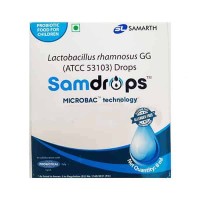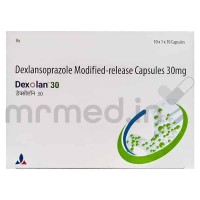Cervavac Injection consists of the active constituent Human Papilloma Virus vaccine. It is indicated to protect your body against infections and diseases caused by the human papillomavirus types 6, 11, 16, and 18. These virus types cause diseases like pre-cancerous lesions in the female genital areas (cervix, vulva, vagina) and anal regions and cause genital warts in males and females. HPV types 16 and 18 are responsible for approximately 70-80% of cervical and anal cancer cases, and HPV types 6 and 11 are responsible for almost 90 % of genital wart cases.
The HPV virus is a common sexually transmitted infection that can lead to various health problems, including genital warts and various types of cancer, including cervical, anal, penile, and throat cancer. Cervavac Injection does not cure the disease; it protects against it. It does not affect people who are already infected with the virus. This vaccine is only intended to prevent these diseases. The vaccine is most effective when given before a person becomes sexually active, as it is designed to protect against HPV strains commonly transmitted through sexual contact. Cervavac Injection is generally considered safe and effective and has been shown to significantly reduce the risk of HPV-related health problems. There are no known interactions with other vaccines.
- Cervical cancer
- Anal cancer
- Genital warts
- Oropharyngeal cancer
Therapeutic Effects of Cervavac Injection
Pregnancy
Cervavac Injection may harm the developing fetus, so it is unsafe to use it during pregnancy.
Breast Feeding
It is unknown whether Cervavac Injection is excreted in human milk. So breastfeeding women should consult their doctor before taking it.
Lungs
Individuals with lung conditions should discuss the risks and benefits of Cervavac Injection with their healthcare provider before receiving it.
Liver
Individuals with liver conditions should discuss the risks and benefits of the Cervavac Injection with their healthcare provider before receiving it.
Alcohol
There is no evidence to suggest that alcohol consumption affects the safety or effectiveness of the Cervavac Injection. Therefore, individuals who consume alcohol can still safely receive the vaccine.
Driving
Cervavac Injection has no known effects on driving ability. It is highly unlikely that receiving this vaccine can cause significant changes in a person's cognitive or physical abilities that would affect their ability to drive.
Serious:
- Allergic reactions
- Hives
- Syncope (fainting)
- Blood clotting disorders
Common:
- Pain, redness, or swelling at the injection site
- Headache
- Fever
- Nausea
There is no evidence to suggest that Cervavac Injection causes infertility. The vaccine has been extensively studied and is considered safe for both males and females.
Cervavac Injection is recommended for males and females between the ages of 9 and 26. However, the vaccine may benefit those outside this age range who have not yet been exposed to the HPV virus.
Cervavac Injection protects against the types of HPV most commonly associated with cervical cancer. Still, it does not protect against all types of HPV or other risk factors for cervical cancer, such as smoking and a weakened immune system.
In general, individuals with tuberculosis can receive Cervavac Injections. However, if you have an active tuberculosis infection, you should wait until your treatment is completed and your symptoms have resolved before receiving the vaccine. This is because having an active infection can affect your immune system and may reduce the vaccine's effectiveness.
No evidence suggests that Cervavac Injection negatively affects the heart or cardiovascular system.
Molecule name: HPV Vaccine | Therapeutic class: Vaccine |
Pharmacological class: Immunizing agent
| Indications: 1. Cervical cancer 2. Anal cancer 3. Genital warts 4. Oropharyngeal cancer |


-700x700-product_thumb.jpg)
-700x700-product_popup.jpg)
-700x700-product_popup.jpg)
-80x80-product_popup.jpg)
-80x80-product_thumb.jpg)
-80x80-product_thumb.jpg)

